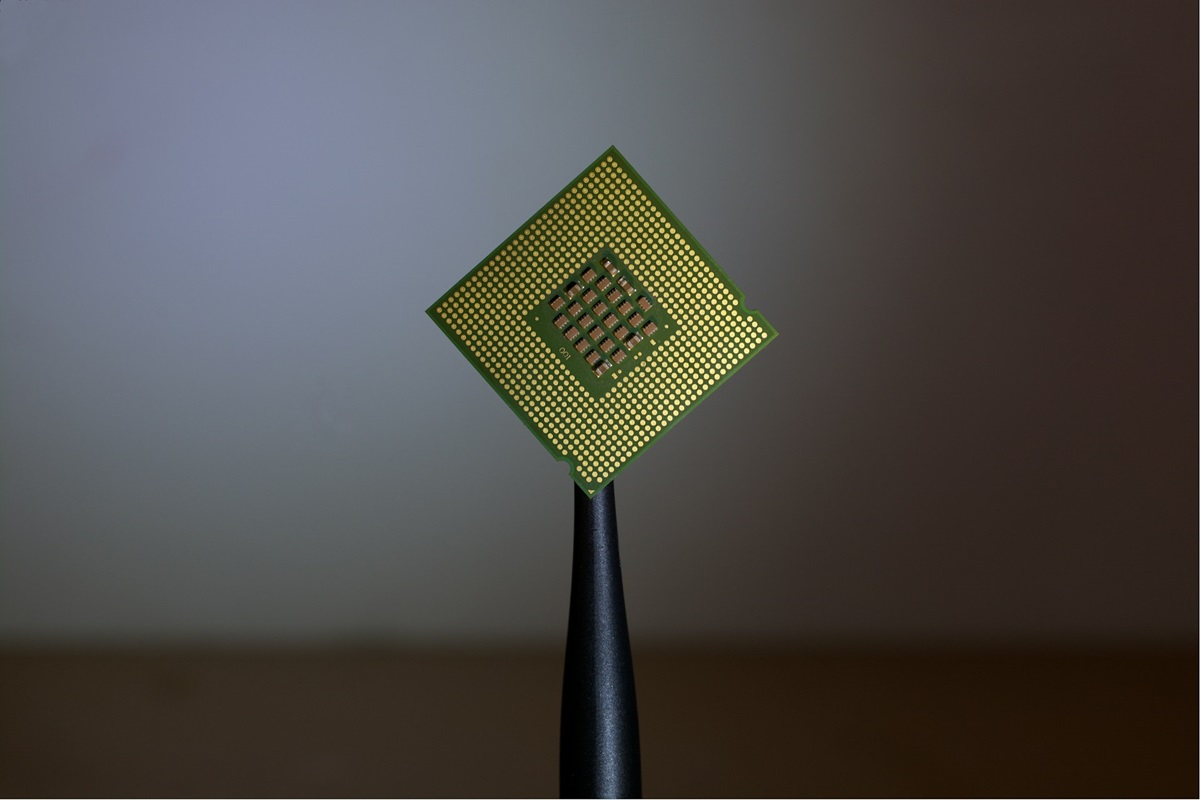China is currently on its way to establishing the largest chip fund, which will become a kind of organization designed to counter the restrictions from the United States in the sphere of access to advanced microcircuits.

To start functioning of the new fund, it is necessary to raise financing for more than $27 billion. In this case, Beijing aims to promote the development of the homegrown industry of advanced technologies.
To some extent, the specified efforts are a necessary measure, since the United States is currently restricting Chinese companies’ access to next-generation chips. In this case, Washington declares intentions regarding the containment of Beijing’s technological potential and also makes statements containing concerns that China will use cut-edging microcircuits to enhance military capabilities. Against the background of relevant decisions by the United States, the Asian country should develop domestic chip production, since inaction in the current geopolitical context will have extremely negative long-term consequences.
Without access to advanced microcircuits, China’s economic and technological potential will decrease, since in the present historical moment, the country’s power is largely determined by its ability to elaborate and produce advanced developments. The current trends indicate that the impact of new-generation technologies on the capabilities of the state, including political ones, will increase.
The National Integrated Circuit Industry Investment Fund in China now raises capital from municipal authorities and state-owned enterprises for its third project, the cost of which, according to media reports, citing insiders may amount to more than 200 billion yuan ($27.8 billion).
The Big Fund, backed by the government of an Asian country, is currently expanding the scope of its activities. These efforts are being made at a time when more and more reports are being published in the information space about the intention of the United States to tighten technological restrictions on China shortly. In this case, Washington aims to slow down Beijing’s progress in the area of chip manufacturing and the sphere of artificial intelligence system development.
The microcircuits-focused fund is being formed under the supervision of the Chinese powerful tech ministry. This activity indicates that Beijing is intensifying efforts to develop the semiconductor market after several years of mixed achievements in this area. Last year, Huawei Technologies Co. and its partner Semiconductor Manufacturing International Corp. (SMIC) still scally used American technology as part of the development of advanced processors.
The media reports that the Chip Fund receives most of the capital from the Chinese municipal authorities, their investment units, and state-owned enterprises. The insider said that the central government in this case intends to limit itself to a minor contribution. Also, the media, citing people who are aware of Beijing’s plans, which are not subject to public discussion, claim that the Chinese authorities are currently seeking to pool capital across the country to implement major projects related to the development of advanced technologies. This approach largely corresponds to the concept used by the head of the People’s Republic of China Xi Jinping in the framework of statecraft.
For Beijing, the relevance of the development of homegrown chip manufacturing is also because Washington urges its allies not to supply China with advanced chips and equipment necessary for making relevant products. Germany, the Netherlands, South Korea, and Japan are joining the implementation of a policy of restrictions on Beijing’s access to semiconductor technologies. The consolidated efforts of the United States and its allies are aimed at creating a strong export control system. In the context of these conditions, Beijing is literally obliged to develop the domestic chip manufacturing industry. Ignoring the challenges coming from the geopolitical area may cause China to be on the sidelines of the global development of advanced technologies.
The governments of Shanghai and other cities, China Chengtong Holdings Group, and State Development and Investment Corp. They are included in the list of investors intending to provide multibillion-dollar financing to the Chip Fund. This was reported by the media, referring to insiders who are aware of the relevant plans.
The Chip Fund will help finance three to four capital pools managed by other general partners. In this case, the so-called fund-of-funds structure will be used to diversify funding sources for the implementation of deals and investment strategies.
The media, citing insiders, also reported that the Chip Fund will directly support local companies. Negotiations on raising funds are currently ongoing. According to insiders, the relevant process may continue for several more months.
The Ministry of Industry and Information Technology of China, the government of Shanghai, Chengtong, and SDIC did not respond to media requests for comment on the initiative to finance the chip manufacturing industry.
The secretive Big Fund is the main mechanism for providing financial assistance to local makers of microcircuits in the Asian country. This organization was established in 2014. The fund raised about $45 billion and invested in dozens of firms. This financing, in particular, was received by major Chinese chip manufacturers such as SMIC and Yangtze Memory Technologies Co.
SMIC is the main maker of microcircuits for Huawei. Last year, this company released a 7-nanometer processor for the Mate 60 Pro smartphone. This product came as a surprise to the United States, which believed that China did not have the appropriate manufacturing capabilities. Against the background of the debut of the advanced processor, discussions have intensified in Washington about the need to tighten technological restrictions against Beijing.
The second phase of the Big Fund was established in 2019. Currently, this organization owns shares in 48 local firms specializing in the production of chips. The first pool, created in 2014, is a shareholder of 74 companies and startups. The relevant information is contained in the Tianyancha corporate database.
The media claim that organizations receiving financial support from a Large Fund have something like the unspoken status of organizations approved by Beijing. This status is not a formality. Tacit approval helps in raising investment funds and guarantees political support.
At the same time, the Big Fund is not an official organization in the full sense. In this case, a significant part of the activity is carried out in the so-called behind-the-scenes format. Moreover, Big Fund hides investment standards from the public. This specificity of the organization’s activities is a negative factor in terms of accountability.
The Big Fund slowed down investment after launching an anti-graft investigation in 2022. During the mentioned legal procedure, the former head of the Big Fund and some other representatives of the management system stepped down. China’s top political leadership initiated the mentioned investigation after a lack of significant progress in the development and production of semiconductors was recorded. The authorities were disappointed with the virtually zero results of activities to replace foreign imports in the technology sector. A separate reason for the indignation of China’s top political leadership was that significant public investments were wasted.
The Big Fund restored activity to its previous level at the end of last year. The organization has invested more than 100 billion yuan in Changxin Xinqiao Memory Technologies Inc., established in 2021.
As we have reported earlier, AMD Reportedly Hits Roadblock for China-Tailored Chip.









